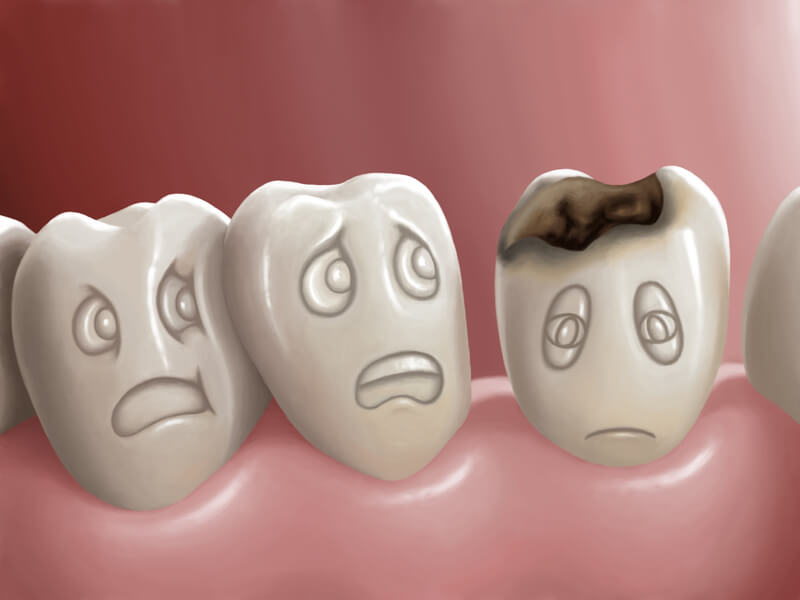Cavities or holes are formed by acid producing bacteria that live on the plaque in your mouth. When sugars and starches aren’t cleaned off your teeth, bacteria quickly begin feeding on them and form plaque. The acids in plaque remove minerals in your tooth’s hard, outer enamel. This erosion causes tiny openings or holes in the enamel — the first stage of cavities.
Brushing and flossing your teeth as well as having them professionally cleaned by our dentists twice a year decreases the level of these damaging bacteria in your mouth. Lack of tooth brushing allows the bacteria to grow producing too much acid which then causes cavities.
Sugary foods feed these bacteria making them produce more acid! So keep brushing and flossing twice a day and keep a healthy, low-sugar diet. These good habits will hopefully lead to a cavity-free visit to Terrigal Dental!



